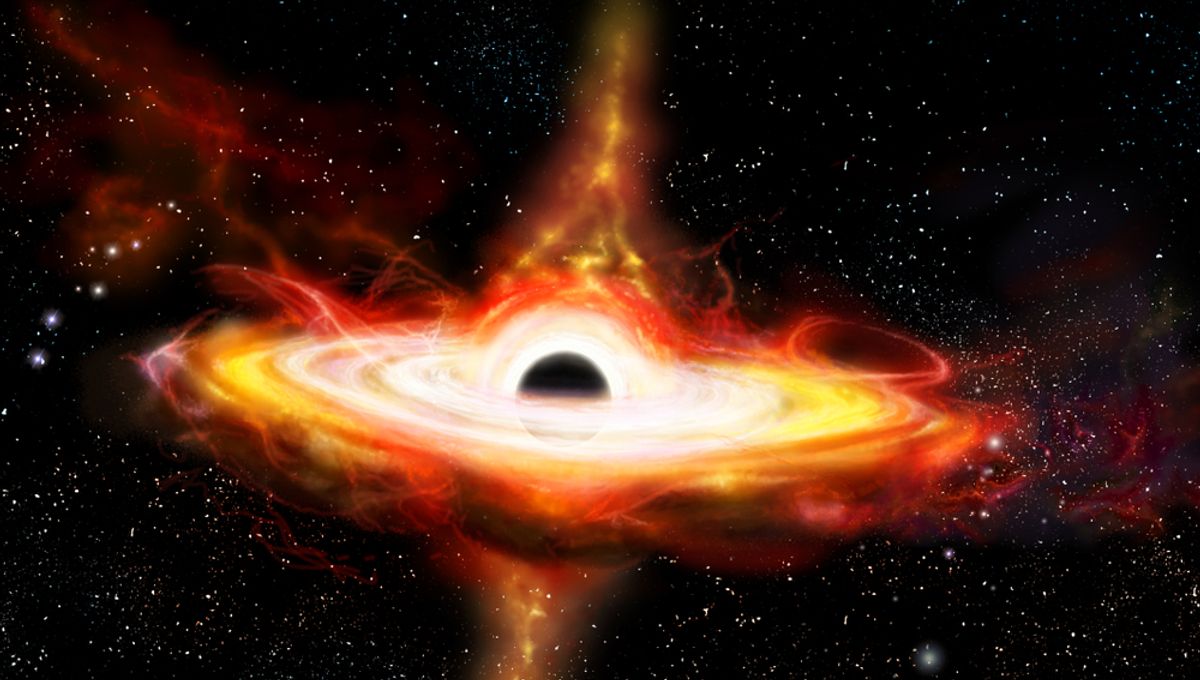
Scary Barbie is so hot right now. In a matter of weeks, two papers by two independent groups have been published defining AT2021lwx, also known as ZTF20abrbeie. Probably more famous for its nickname “Scary Barbie”, it’s the largest cosmic explosion ever detected.
A study published last week suggested it was a star being ripped apart by a supermassive black hole, a phenomenon known as a tidal disruption event. Barbie is three times brighter than the brightest tidal disruption event ever recorded. This second paper argues that the supermassive black hole is not shredding and eating a star of about 15 times the mass of the Sun, but rather it is eating a more massive gas cloud, around 1,000 times heavier than our Sun.
“At first, we thought this flare-up could be the result of a black hole consuming a passing star. But our models showed that the black hole would have to have swallowed up 15 times the mass of our Sun to stay this bright for this long,” Dr Matt Nicholl from Queen University Belfast, said in a statement sent to IFLScience.
“Encountering such a huge star is very rare, so we think a much larger cloud of gas is more likely. Many massive black holes are surrounded by gas and dust and we are still trying to work out why this particular black hole started feeding so vigorously and so suddenly.”
The peculiarity of Barbie is not just about the energy emitted from the event, but also its duration. Supernovae or tidal disruption events are only visible for a few months but don’t usually get this bright. This event has lasted for three years. Even transient events that can get this bright, like the recent brightest gamma-ray burst GRB 221009A (which is actually brighter), last for a few minutes not years.
The only equivalent objects are quasars, the state of a supermassive black hole in a feeding frenzy with a constant flow of gas to be snacking on. They are the brightest objects in the universe
“With a quasar, we see the brightness flickering up and down over time. But looking back over a decade there was no detection of AT2021lwx, then suddenly it appears with the brightness of the brightest things in the universe, which is unprecedented,” Professor Mark Sullivan of the University of Southampton, another co-author of the paper, explained.
Maybe Barbie was the beginning of a quasar phase? Scary Barbie continues to shine and be observed, so we can expect a lot more studies to come out trying to explain this extreme cosmic event.
The study is published in the Monthly Notices of the Royal Astronomical Society.
Source Link: This Is The Largest Cosmic Explosion In The Universe Ever Seen